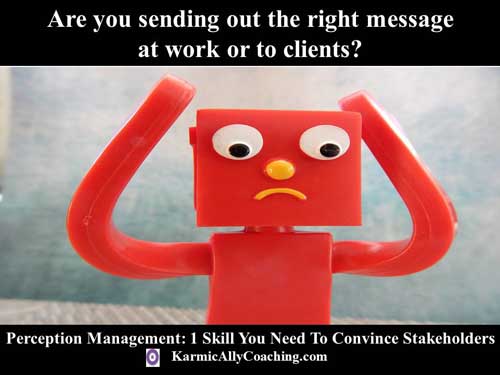
Last week I saw instances where an action or two done in good faith affected the person’s credibility and perception about their leadership and presence.
2 stood out for me. In all cases the individuals have lost ground and will require damage control to redeem the situation.
One was a Coach who was put in Facebook Jail. She was reaching out to her email list subscribers to keep posting in her Group while she cooled her heels in the slammer.
Considering she’s a Facebook Coach, that’s a hit on her credibility as a specialist. Unless she swings this to her advantage, potential customers may shy away from her products and services.
I admire her and know she’s good but …
I’m not a Facebook Expert by any stretch of imagination. Maybe it had something to do with sending lots of messages via Messenger. Somebody or somebodies might have gotten irritated and complained.
Messenger is being touted as the next best thing since sliced bread for reaching our followers on Facebook for business. What many Gurus forget is that there is a social element in social media as well as a fine line between marketing and spamming.
Then there was the instance of a marketing professional who messed up an important deal because she didn’t do her homework. She pitched her proposal right out of the ballpark.
Not satisfied, she badgered the prospective client with cold calls and is now getting the cold shoulder.
I appreciate the tenacity of the marketing professional. Back in the day when I was working in the Big Four Accounting firms, despite my client-facing role, I used to be involved in many of the proposals we’d send out. There is a lot of hard work involved.
It was not just filling up a template with numbers. We’d research the client, the market and draw on our firm experience to demonstrate why we were the right choice.
Quite often we’d win the mandate not because we were the cheapest but because the client liked the way the pitch team approached them.
2 completely different examples. The point is, it doesn’t matter what you know but what the other person thinks of you.
In a world that is going more digital by the day, our online actions take on a deeper significance.
Here’s another example from my own experience.
I received a cold email from a company offering me soft skills and leadership services. No personalization in the email. Clearly no research done on the company they were sending the email to.
I decided to research this company a little more and what better place than LinkedIn?
It turned out we had 25 mutual connections of which quite a few were known to me at both a personal and professional level.
So, I called the sender and asked how they had found me. I got a rude response about being in a marketing database. The conversation went in a completely different direction with my giving a few tips on Permission Marketing.
In return I was instructed to send an email requesting to be removed from their database that I did pronto.
I continued my research on this company and found they had plagiarized a blog post from a reputed SEO and content marketing company that I follow. The author is someone I admire. They posted it on LinkedIn’s Pulse.
Their credibility is completely destroyed in my eyes.
Sometimes it depends upon the story and how you present facts that can create a completely different perception as was pointed out in an HBR Article called Managing Perceptions .
The case study was about the propaganda created involving the incident during the Blair government of the capture and release by Iran of Britain’s 15 sailors. It was about how both sides managed the “truth” of the story and its aftermath.
Key lessons were shared in that post. One that is worth thinking about seriously is managing stakeholders sensitively because they will be the first to point out the blatant use of spin or concealment.
Perception is important in the corporate world where there are enough competent professionals vying for the top spots and sadly, everybody is dispensable.
Credibility and executive presence are more important now than ever.
Of course, the degrees from prestigious organizations will get your foot through the door. After that, your ability to demonstrate your leadership potential depends upon your actions and how they are interpreted.

In other words, you need to get a new skill that isn’t taught in school but in life experience – Perception Management.
The perception that I’m talking about isn’t just how your boss or senior decision makers see you. It includes the perception of your peers and subordinates at work too. If you are in a role where you are facing outside parties, then their perception becomes important too.
The art of being able to articulate your message and what you stand for requires social intelligence. This is also important for leaders at all levels and for professionals who want to get ahead in their careers.
Are you sending out the right message at work or to clients?
If not, I invite you to check out a resource and work on your Executive Presence in a low-risk low-cost activity with high value.
This is a special offer for my Executive Presence Workbook.to help you raise your visibility at work and demonstrate your leadership skills.
This special offer has a value of $197 but you can get for a nominal fee of $97 where you get the workbook AND a Power Coaching Session.
The Power Coaching Session is different from my signature coaching package. It’s ideal if you need a shot in the arm to take the next steps to raising your profile at work.
The full details are available by clicking here




 I adhere to the Certified Coaches Alliance Code of Ethics and Standards. A copy is available on request.
I adhere to the Certified Coaches Alliance Code of Ethics and Standards. A copy is available on request.
 Let's Talk through the Connect Form:
Let's Talk through the Connect Form: